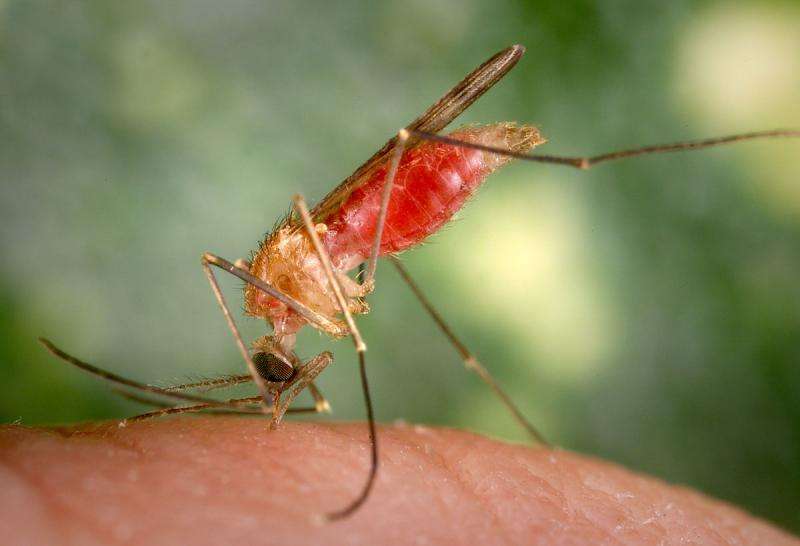Anopheles gambiae mosquito, feeding on blood. Credit: James Gathany, Centers for Disease Control and Prevention
Michigan will conduct aerial spraying for the first time since 1980 to combat a rare mosquito-borne virus that has killed three people and been recorded across the southern half of the state.
The spraying is set to begin Sunday night and will include portions of 14 counties, including 13 where eastern equine encephalitis has been confirmed in humans or animals. Weather may change the actual spraying schedule.
Other states, including Massachusetts and Rhode Island, have recently done such sprays as well during a year in which the number of U.S. deaths and illnesses from the virus are higher than usual.
In announcing the move Friday, Michigan officials cited the large geographic distribution and number of cases along with warm weather projections. Mosquitoes generally do not die until the first hard frost.
"We believe that this is another tool that we can use to protect health," said Dr. Joneigh Khaldun, the state's chief medical executive.
Officials said low-flying planes will spray an organic pesticide over 720,000 acres (291380.008 hectares), at an estimated cost of between $1.5 million and $1.8 million. The state last sprayed mosquitoes in 1980, though communities have sprayed locally to fight outbreaks of the West Nile virus and to control mosquitoes as a nuisance, said Dr. Mary Grace Stobierski, the state's public health veterinarian.
Officials said the pesticide, Merus 3.0, will not pose a health risk to humans or animals, including bees and other pollinators such as butterflies.
The virus has been confirmed in nine people, with three fatalities, in six counties in southwestern Michigan. There have been 27 animal cases in 13 counties.
Officials continued to urge residents to take precautions such as avoiding being outdoors from dusk to dawn, applying insect repellants and wearing long-sleeved shirts and pants.
© 2019 The Associated Press. All rights reserved.




















